What can I substitute for Savory?
Savory is a Mediterranean herb which is prized for its aromatic flavors. If you need a substitute for Savory try using Thyme, Rosemary, Marjoram, Oregano, Sage, Basil, Tarragon or Herbes de Provence.
What is Savory?
Savory is a herb which is commonly associated with Mediterranean cuisine and is often referred to as a Mediterranean herb. It is highly aromatic and is actually a member of the mint family. There are two main types of savory: summer savory, and winter savory. Both varieties are used in Mediterranean cooking, particularly in dishes originating from southern Europe, including Italy, Greece, and France.
Savory has been used in Mediterranean culinary traditions for centuries, known for its aromatic, slightly peppery, and earthy flavor. It pairs well with various ingredients commonly found in Mediterranean cuisine, such as tomatoes, olives, garlic, and olive oil.
In Mediterranean cooking, savory is frequently used to enhance the taste of soups, stews, meat dishes, vegetable preparations, and sauces. It also blends well with other Mediterranean herbs like thyme, rosemary and oregano. Furthermore it blends very well with basil, and in spice mixes like “Herbes de Provence.”
Its popularity in Mediterranean cuisine is due to its ability to add a savory and herbaceous flavors. These flavors complement a wide range of dishes, making it a staple herb in the region’s culinary repertoire.
If you’re looking for a substitute for savory herbs, it depends on the specific recipe and the flavor profile you want to achieve. Savory herbs have a distinctive taste that is often earthy and somewhat peppery. Here are some herbs and spices that you can use as replacements or alternatives. Remember, the best substitute for savory herbs depends on the dish you’re preparing and your personal taste preferences. Feel free to experiment with different herbs to find the combination that suits your needs.
Okay, before we look at your Savory substitute options, let’s deal with that empty cupboard situation!
Where can I buy Savory?
If you want to be more prepared and ensure you don’t run out of savory then you should stock up now.
Nowadays most delicatessens and general supermarkets stock a wide variety of savory. Or if you prefer you can also purchase savory herb on-line. Here is a link for a 2 ounce pack of dried savory leaves.
So why not jump on and place your order today.
STOCK UP NOW!
100% natural dried summer savory spice. Delicious earthy and peppery flavor and aroma.
Rich in vitamins, calcium, magnesium and antioxidants.
Suitable for Gluten-free, Kosher & Vegan diets.
What can I substitute for Savory?
Here are some of the best ingredients to substitute the flavor and role that savory provides in your recipes.
- Thyme
- Rosemary
- Marjoram
- Oregano
- Sage
- Basil
- Tarragon
- Herbes de Provence
Savory substitutes
Thyme
Thyme is an excellent substitute for savory herb, especially if you don’t have savory available. While thyme has a slightly different flavor profile, it shares some similarities, making it a versatile alternative in various dishes. Thyme has a slightly similar earthy and slightly peppery flavor, making it a good substitute for savory in many dishes. Here’s how you can use thyme as a substitute for savory:
- Thyme can be used in place of savory to add an herby and slightly earthy flavor to soups and stews. It works well with vegetables, meats, and legumes, enhancing the overall taste of the dish.
- Thyme can be used as a substitute for savory in meat rubs and marinades. It complements poultry, beef, pork, and lamb, infusing them with its pleasant herbal notes.
- When roasting vegetables, thyme can be sprinkled over them, providing a similar earthy and herbaceous flavor that savory would bring.
- Thyme can be added to sauces and gravies as a savory replacement, contributing to the overall depth of flavor.
- It can be used in place of savory in stuffing recipes. It works very well for poultry or vegetarian options, adding a delightful aromatic touch.
- If you have a recipe calling for a mix of herbs that includes savory, you can use thyme as a substitute. For example, “Herbes de Provence” typically includes thyme, rosemary, oregano, and marjoram. This makes thyme a suitable replacement for savory in this blend.
Remember that while thyme can provide a similar flavor profile to savory, the intensity and exact taste might not be identical. Adjust the quantity to your taste preferences and the specific dish you’re preparing. Thyme is a versatile herb that can complement a wide range of dishes, making it a reliable alternative when savory is not available.

Rosemary
Rosemary can be used as a substitute for savory herb in certain dishes, but it’s important to note that they do have distinct flavor profiles. It has a strong, pine-like flavor with hints of citrus and pepper. This provides a stronger flavor that savory which has a milder, herbaceous, and peppery taste. Despite the differences, rosemary can still provide a pleasant and aromatic addition to many recipes where savory is called for. Here are some ways you can use rosemary as a substitute for savory:
- Like savory, rosemary pairs well with roasted meats, such as chicken, lamb, and pork. It can add a unique and savory flavor to these dishes.
- Rosemary can be sprinkled over roasted or sautéed vegetables and potatoes, adding an herbal and slightly peppery taste.
- While rosemary has a stronger flavor than savory, it can still be used in stews and soups. This is especially true if they include hearty ingredients like beans and root vegetables.
- If your recipe calls for a combination of herbs that includes savory, you can use rosemary as part of the blend. It works well with other Mediterranean herbs like thyme and oregano.
- Rosemary is often used as a topping for bread and focaccia. This can add a delicious herbal twist to your baked goods.
- It can be incorporated into meat marinades and rubs to infuse the dish with its unique flavor.
While rosemary can work as a substitute for savory in some dishes, keep in mind that its strong flavor might not be suitable for all recipes. If you’re looking for a closer alternative to savory, consider using thyme. Or you could try a combination of thyme and other herbs to achieve a similar taste profile.
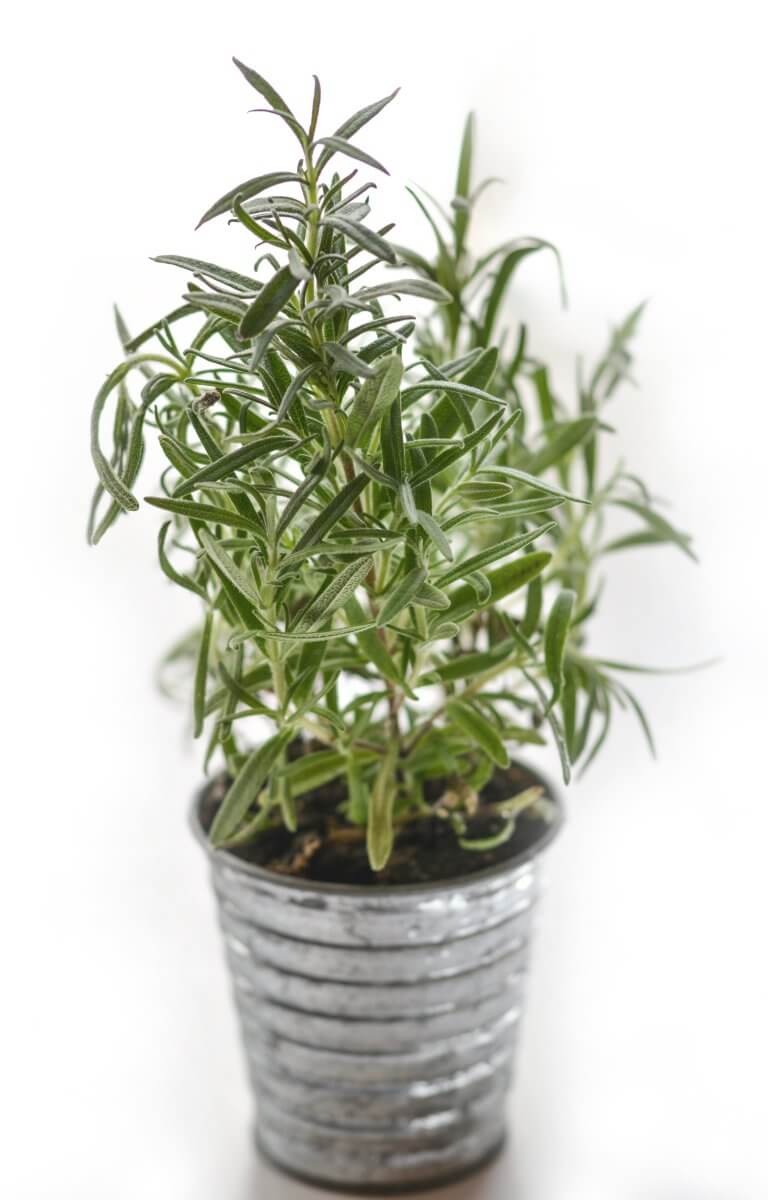
Marjoram
Marjoram can be an excellent substitute for savory herb as they both belong to the same botanical family and share some flavor similarities. It has a mild, sweet, and slightly floral taste, but its flavor profile is reminiscent of savory, making it a suitable replacement in various dishes. Here’s how you can use marjoram as a substitute for savory:
- Marjoram can be used in soups and stews as a substitute for savory, providing a similar herbaceous flavor that complements the ingredients.
- It works well as a substitute for savory in meat seasonings, particularly for poultry, pork, and veal dishes.
- Marjoran can be used in stuffing recipes as a savory replacement, adding a pleasant herbal note to the mixture.
- Sprinkle marjoram over roasted vegetables to impart a mild and aromatic flavor, similar to what savory would add.
- As mentioned before, if you have a recipe calling for a blend that includes savory, marjoram can be used as a substitute in herb blends like “Herbes de Provence.”
- Marjoram can be used in sauces and dressings to replace savory and bring a gentle herby taste to the dish.
Keep in mind that while marjoram can mimic the flavor of savory to some extent, it still has its unique characteristics. Adjust the quantity according to your taste preferences and the specific dish you’re preparing. Overall, marjoram is a versatile herb that can work as a great substitute for savory in many culinary applications.

Oregano
Oregano can be a suitable substitute for savory herb, especially in certain dishes. Both oregano and savory belong to the same botanical family and share some similarities in flavor, although they do have distinct taste profiles. Oregano has a stronger and more pungent flavor compared to savory, so it’s essential to use it judiciously when replacing savory with oregano. Here’s how you can use oregano as a substitute for savory:
- Oregano is commonly used in Italian and Mediterranean cuisine, making it a natural substitute for savory in dishes like pasta sauces, pizzas, and grilled vegetables.
- It can be used as a substitute for savory in meat rubs and marinades, particularly for beef, lamb, and poultry.
- Oregano pairs well with tomatoes, making it a great choice for recipes like marinara sauce, salsa, and tomato-based soups.
- It is often part of herb blends like “Italian seasoning,” which can be used as a savory replacement in various dishes.
- Oregano is a staple in Greek cooking and is commonly used in dishes like Greek salads, souvlaki, and moussaka, making it a suitable substitute for savory in these recipes.
- It can add a Mediterranean flair to many dishes, which can work as a savory substitute in various recipes.
Remember that oregano’s stronger flavor means that you might need to use a smaller amount compared to the amount of savory called for in the recipe. Taste and adjust as necessary to achieve the desired flavor profile. While oregano may not perfectly replicate the taste of savory, it can still add an herbaceous and aromatic touch to your dishes, especially those with Mediterranean influences.
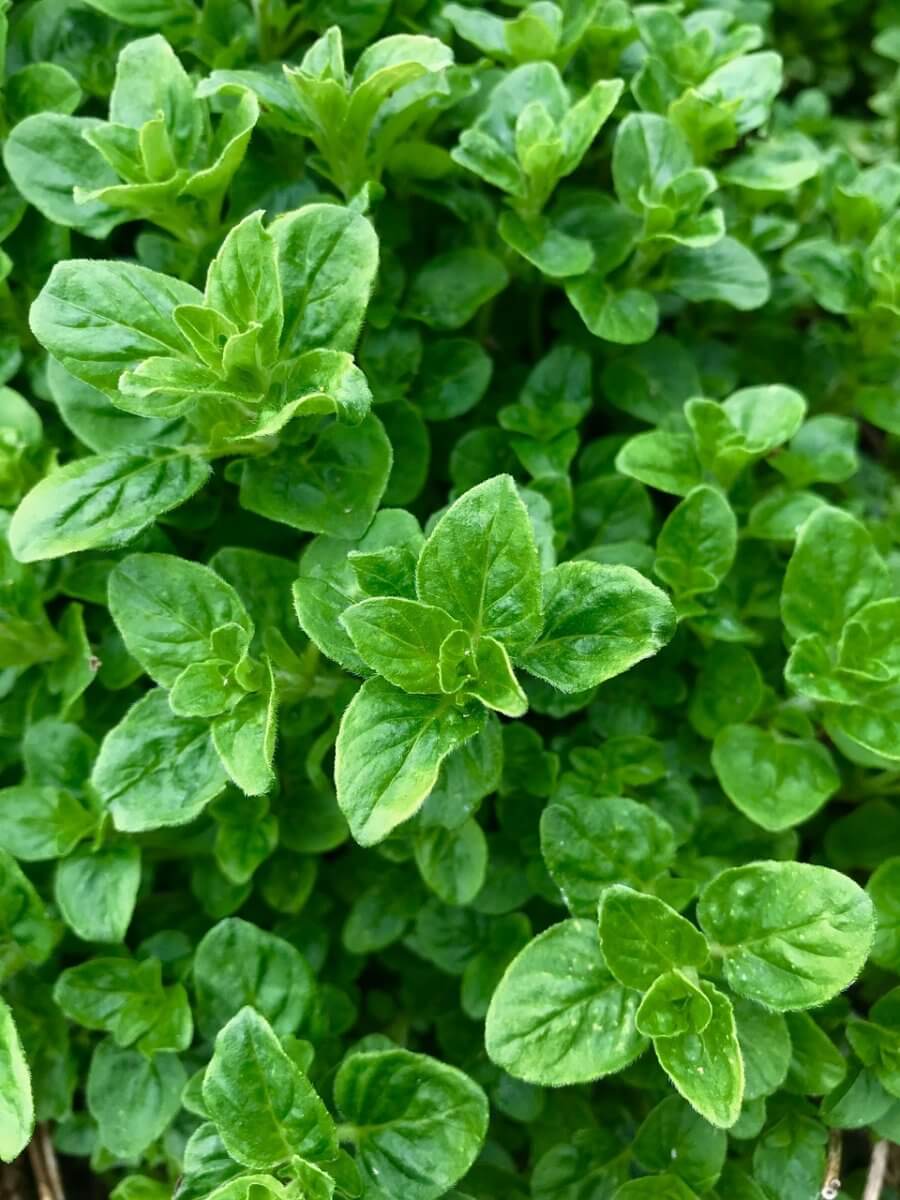
Sage as a Savory substitute
Using sage as a substitute for savory herb can work well in certain dishes, but it’s important to consider the flavor profile and potency of sage, which is quite different from savory. Sage has a distinct, slightly bitter taste with a warm, earthy, and aromatic flavor. While it may not be an exact replacement for savory, it can still add depth and complexity to various recipes. Here’s how you can use sage as a substitute for savory:
- Sage is a traditional herb used in stuffing recipes, particularly for poultry, and can be used as a substitute for savory in this context.
- It pairs well with roasted meats, especially with pork and poultry, as it complements their flavors and adds an herby aroma.
- Sage is a key ingredient in many poultry seasoning blends, so it can be used as a savory replacement in such mixes.
- It is often used in sausage-making due to its savory and aromatic qualities, making it a potential substitute for savory in sausage recipes.
- Sage can be added to bean dishes to provide an earthy and slightly bitter taste that can mimic some aspects of savory flavor.
- If you’re looking to replace savory in a recipe that calls for a herb blend, sage can be used as a component of the blend along with other herbs like thyme, rosemary, and marjoram.
While sage can work as a savory substitute in certain recipes, it’s essential to be mindful of its potent flavor. Start with a smaller amount of sage than the recipe calls for in savory, and then adjust to your taste preference. Keep in mind that the final taste may not be an exact match, but sage can still provide a delightful herby touch to your dishes.
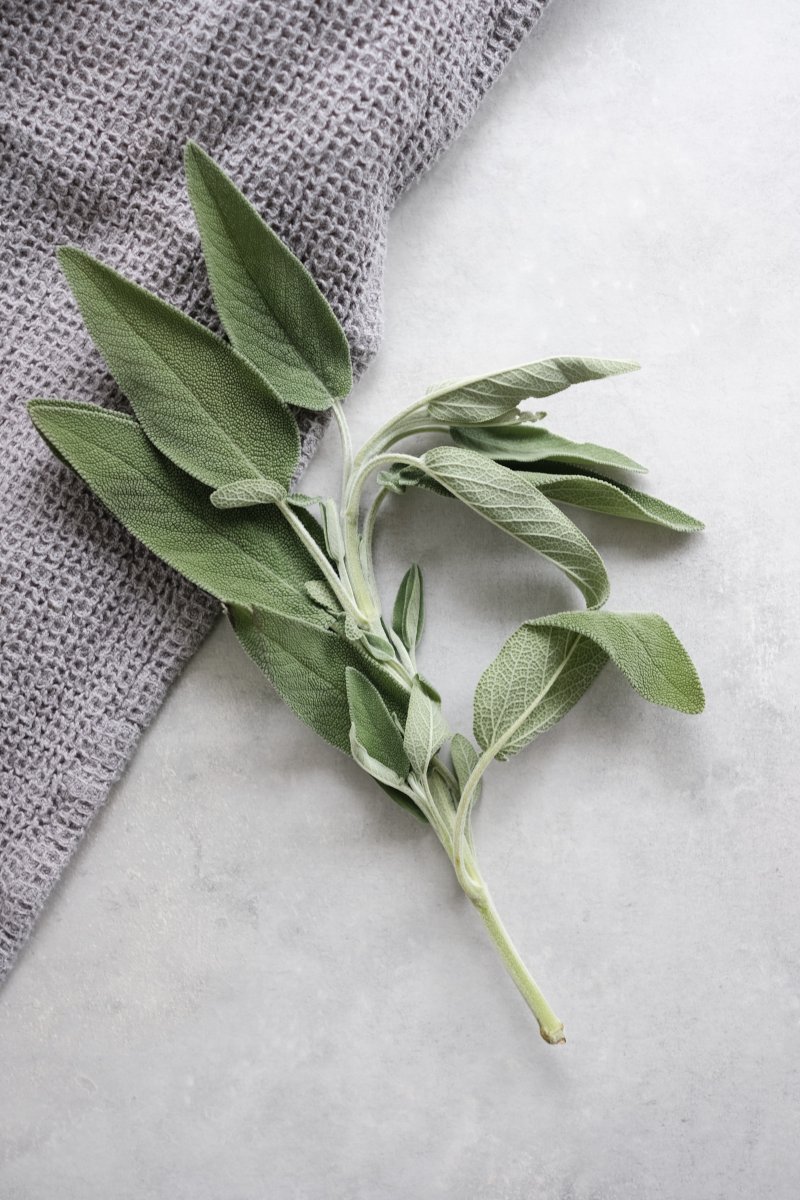
Basil as a Savory substitute
Using basil as a substitute for savory herb can be done, but it’s important to note that basil has a sweeter and more pronounced flavor. This flavor is described as more subtle, peppery, and with an earthy taste. However, in certain dishes, basil can still provide an enjoyable herby element. Here’s how you can use basil as a substitute for savory:
- Basil pairs exceptionally well with tomatoes, making it a great substitute for savory in dishes like pasta sauces, bruschetta, and caprese salads.
- It is the key ingredient in traditional pesto, and its fresh, aromatic flavor can replace savory in pesto recipes.
- Basil is a staple in Italian and Mediterranean cuisine, so it can be used as a substitute for savory in recipes like pizzas, pasta dishes, and grilled vegetables.
- The leaves can add an herby and slightly sweet flavor to salads, acting as a savory replacement in some cases.
- Basil can be included in herb blends to replace savory in certain recipes. For example, it can be combined with thyme and oregano for a Mediterranean-inspired blend.
- While not a direct replacement, basil can still be added to certain soups and stews to impart an aromatic and herby taste.
Keep in mind that basil’s sweetness may not suit all savory dishes. This would be particular important for dishes where the peppery and earthy notes of savory are crucial. If possible, consider combining basil with other herbs like thyme or marjoram. This will create a blend that better mimics the savory flavor. While it may not perfectly replicate the taste of savory, basil can still add a delightful and fresh herbal touch to your dishes.
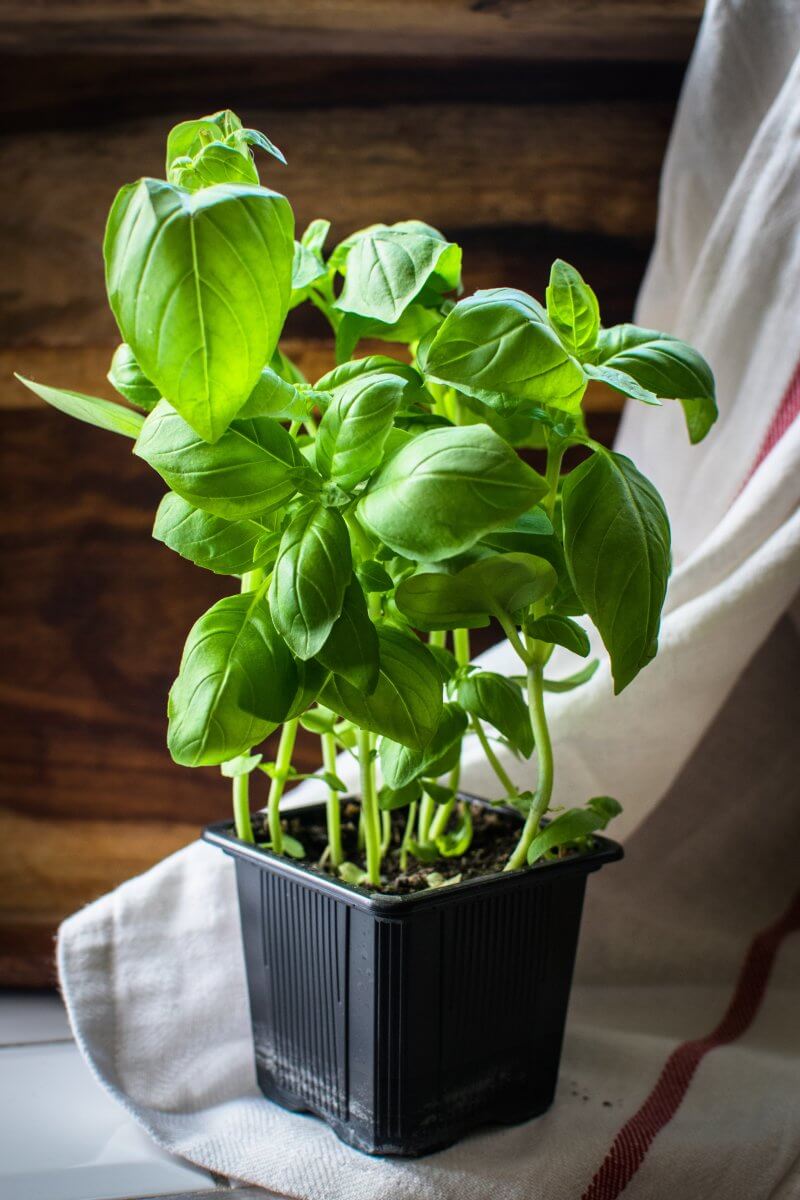
Tarragon as a Savory substitute
Tarragon can be used as a substitute for savory herb in certain dishes, but it’s important to be aware that tarragon has a unique flavor profile. It has a distinct licorice or anise-like taste, which is quite different from the peppery and earthy flavor of savory. As a result, using tarragon as a substitute may significantly alter the overall taste of the dish. However, in some recipes, the herbal and slightly sweet notes of tarragon can work well. Here’s how you can use tarragon as a substitute for savory:
- Tarragon can complement chicken and fish recipes, and in some cases, it can be used as a savory replacement to add an interesting herbal touch.
- It can be used in egg dishes and omelets especially if you enjoy its anise-like flavor.
- Tarragon can be added to cream-based sauces and dressings as a savory alternative. This will enhance the overall taste with its unique herbal notes.
- It can be included in herb blends to replace savory in certain recipes. For example, it can be combined with thyme and chives for a unique blend.
- Tarragon can be used in potato dishes to provide an interesting twist on the traditional savory flavor.
- It can be added to vegetable preparations, but keep in mind that the licorice flavor may not suit all vegetables.
If you decide to use tarragon as a substitute for savory, consider doing so in dishes where the licorice-like taste will complement the other ingredients. As always, taste and adjust as necessary to achieve the desired flavor profile. While tarragon may not be a direct replacement for savory, it can still bring a distinct and interesting flavor to your dishes.

Herbes de Proveance
Herbes de Provence can be a suitable substitute for savory herb because it often contains many of the same herbs found in savory, along with additional flavorful herbs commonly used in Mediterranean cuisine. It is a classic French herb blend that typically includes a combination of dried herbs such as thyme, rosemary, oregano, marjoram. Sometimes it also includes sometimes lavender flowers.
Since savory is a component of Herbes de Provence, using this blend as a substitute can help replicate some of the savory flavors in your dishes. Here’s how you can use Herbes de Provence as a substitute for savory herb:
- Sprinkle Herbes de Provence on roasted meats, such as chicken, beef, or lamb, to impart a savory and aromatic flavor.
- Use Herbes de Provence as a seasoning for roasted or grilled vegetables, enhancing their taste with savory and herbal notes.
- Add Herbes de Provence to soups and stews to infuse them with a delightful mix of savory herbs.
- Incorporate Herbes de Provence into your marinades for meats, poultry, or tofu, providing them with a Mediterranean touch.
- Mix Herbes de Provence into bread or pizza dough for added flavor and aroma.
- Add Herbes de Provence to your sauces, salad dressings, or vinaigrettes to create savory and herbaceous flavors.
It’s important to note that Herbes de Provence may contain other herbs like lavender, which can add a slightly floral note to your dishes. This can be a delightful addition to some recipes but may not be suitable for all savory dishes. Nevertheless, Herbes de Provence can still be a versatile and flavorful alternative when savory herb is not available.
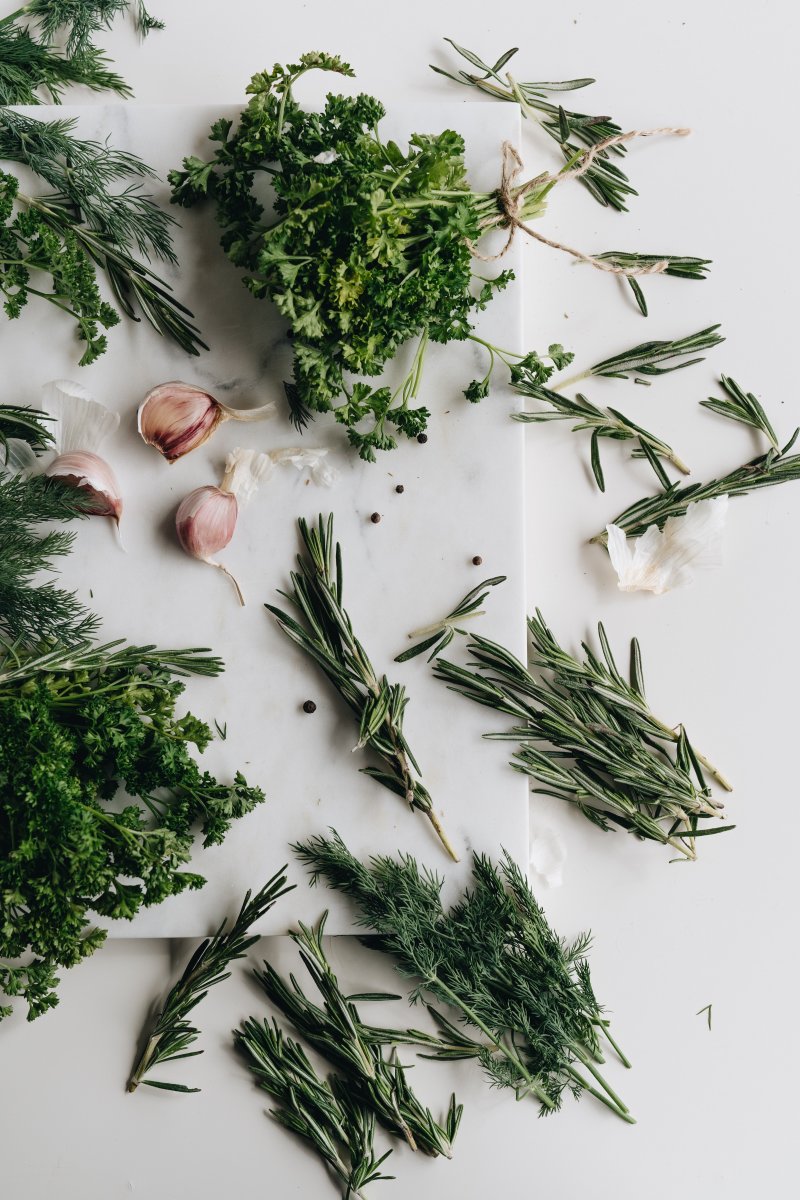
Summary for Savory substitutes
Okay – that’s you all sorted with suitable substitutes for Savory.
In conclusion, savory is a flavorful herb known for its peppery and earthy taste, commonly used in Mediterranean cuisine. If you need to substitute savory in a recipe, you have several options depending on the flavor profile you want to achieve:
- Thyme is a versatile herb with a similar earthy and slightly peppery flavor to savory. This makes it an excellent substitute for savory in various dishes.
- Rosemary has a milder flavor marjoram but can still provide a pleasant herbal note as a substitute in certain recipes.
- Marjoram can work as a savory substitute in Mediterranean and Italian dishes, adding a zesty, earthy flavor.
- While basil has a sweeter taste than savory, it can still add an herby flavor to your dishes.
- Herbes de Provence often includes some of the herbs mentioned above. This makes it a versatile option as a substitute for savory.
- Tarragon has a unique licorice-like flavor, which may not perfectly replicate savory, but it can bring a distinctive taste to certain dishes.
It’s essential to consider the specific recipe and the overall taste you want to achieve when choosing a substitute for savory. Experiment with different herbs to find the combination that suits your palate and the dish you are preparing. While substitutes can’t exactly replicate the flavor of the original herb, they can still add unique and delightful elements to your culinary creations.
If you would like to find out a bit more about individual herbs why not check out our Herb Reference Guide.

![SPICES VILLAGE Summer Savory Spice [ 2 oz ] – Natural Dried Summer Savory Leaves for Cooking and Herbal Tea, Pure Mediterranean Seasoning - Kosher, Gluten Free, Vegan, Non GMO, Resealable Bulk Bag](https://m.media-amazon.com/images/I/51XtTibD1nL._SL500_.jpg)